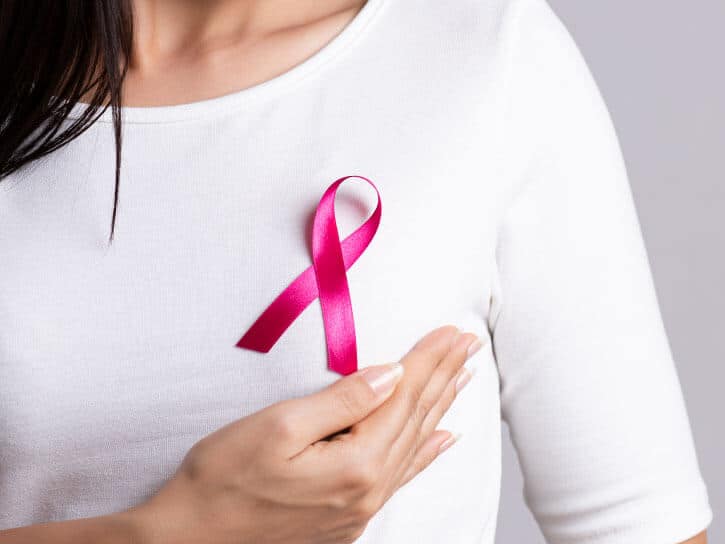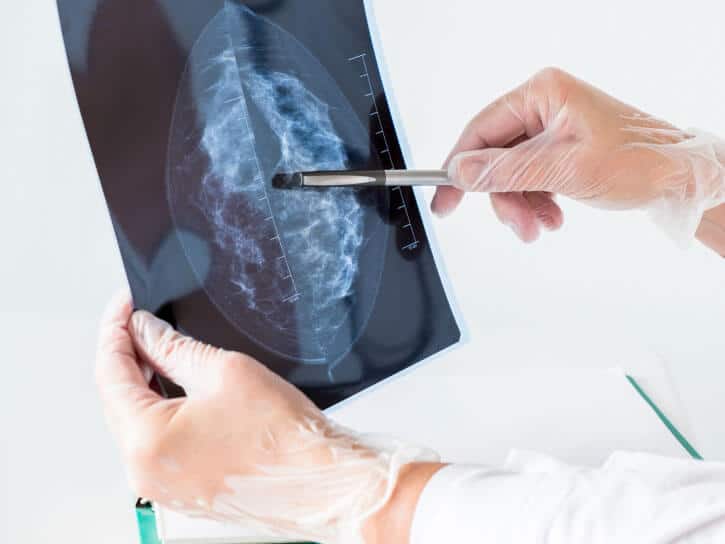The ins and outs of breast cancer
The ins and outs of breast cancer
Some fantastic work has been done in the detection and treatment of breast cancer over recent decades, thanks to our wonderful scientists and awareness programs around early detection.
However there are still much work to be done. This Breast Cancer Awareness Month we take a closer look at the statistics around this disease, some risk factors you can be aware of, how you can be proactive in early detection and what you are entitled to for free from the Australian Government.

Breast cancer – the statistics
According to the Australian Institute of Health and Welfare, there will be an estimated 20,000 new cases of breast cancer diagnosed in 2020, accounting for 14% of all cancer diagnoses for the year.
Sadly, over 3,000 Australians will lose their battle with breast cancer in 2020. As we mentioned earlier however, great strides have been made in the treatment of breast cancer, and currently there is a 91% five-year survival rate for breast cancer sufferers, meaning that for many, life after breast cancer treatment is a real possibility.
With such a high number of cases each year, it is important to use events such as Breast Cancer Awareness Month to remind Australians, and women in particular, about risk factors and how they can manage risks and work towards better outcomes.

What are the risk factors for breast cancer?
Some factors you can’t change, such as being female, getting older or having a strong family history. However there are some lifestyle factors that you may be able to change to help you manage your risk. This list of recommendations has been compiled by Cancer Australia, a department of the Australian Government:
- Reduce your alcohol consumption – the more you drink the greater the risk.
- Aim for a healthy body weight – keep your weight within a healthy BMI range and your waist circumference below 80cm.
- Exercise regularly – aim for at least 30 minutes of moderate intensity physical activity each day.
- Ask us about MHT/HRT – make sure your GP regularly reviews your needs if you are taking oestrogen or progestogen, for example as a treatment for menopause.
- Breastfeed, if you can – breastfeeding can reduce the risk of breast cancer.
Many of these lifestyle factors can also help in the prevention of other diseases, and also promotes overall health so they are encouraged in general for good health and well-being.

Early detection is key for breast cancer
As we mentioned above, with early detection and effective treatment, there is currently a 91% five-year survival rate for breast cancer patients. Much of the onus for early detection rests on you, and your awareness of your own body.
Regular at-home breast checks are encouraged – you don’t need to be an expert to do this, and you can always ask a GP for guidance if you have any concerns.
Cancer Australia, a department of the Australian Government, has put together this useful list of changes to look for when checking your breasts:
- Any new lumps or lumpiness, especially if only in one breast
- Any changes in size or shape of your breast
- Any changes to your nipples
- Any discharge
- Any changes in the skin such as redness
- Any pain, that does not go away.
If you experience any of these changes, we urge you to book an appointment to discuss with a GP where we can review your medical history as a whole and advise on the next steps.

Detection of breast cancer with regular mammograms
Women in Australia aged 50-74 are entitled to a free breast screen (mammogram) every two years through the BreastScreen Australia program. Women in their forties, or 75 and over are also eligible for free mammograms through the same program.
We encourage anyone who has any concerns to have regular discussions with their GP. At SwiftDoc, because we are an online service, you can select the same GP each time you book no matter where you are in the country. That means that over time, we can build a complete medical history for you, allowing us to provide detailed and comprehensive support and advice. We also offer support services such as counselling and nutritional advice, allowing you to form a health team all working towards your best possible health outcomes.
Sources (accessed October 2020):
Australian Institute of Health and Welfare, Australian Government, BreastScreen Australia monitoring report 2020.
Cancer Australia, Australian Government, Breast cancer risk factors.
Cancer Australian, Australian Government, Be Breast Aware.
This website does not provide medical advice. It is intended for informational purposes only. It is not a substitute for professional medical advice, diagnosis or treatment. Never ignore professional medical advice in seeking treatment. If you think you may have a medical emergency, immediately dial Triple 0 (000).